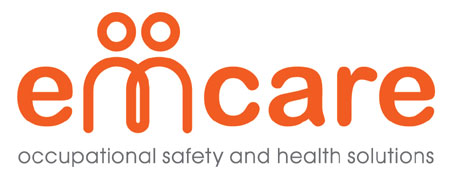Founded by the International Federation of Red Cross and Red Crescent Societies (IFRC), World First Aid Day occurs annually on the second Saturday of September, which this year falls on the 13th day of September. Its purpose is to promote first-aid education and encourage preparedness so that lives may be saved.1
This day is the time for businesses to review their compliance with the Health and Safety (First-Aid) Regulations 1981. These Regulations apply to all workplaces, including those with fewer than five employees. Employers are legally required to conduct a first-aid needs assessment.2 If you have done so in the past, you may need to update your assessment, particularly if you have had operational changes.3
By doing this assessment, an employer can determine the number of first-aiders necessary. Employers must also ensure that those first-aiders have been suitably trained and have an appropriate qualification.
Typically, first-aiders will hold a valid certificate of competence in either first aid at work (FAW) or emergency first aid at work (EFAW). EFAW training enables a first-aider to give emergency first aid to someone who is injured or becomes ill while at work. FAW training includes EFAW and also equips the first-aider to apply first aid to a range of specific injuries and illnesses (see paragraphs 52–73).4
The Regulations also require retraining:
All first-aid training certificates, whether FAW, EFAW or some other appropriate training, are valid for three years. Employers need to arrange retraining before certificates expire. The FAW requalification course lasts two days and should cover the same content as the initial FAW course (Appendix 5). If the first-aider does not retrain or requalify before the expiry date on their current certificate they are no longer considered competent to act as a first-aider in the workplace. They can requalify at any time after the expiry date by undertaking the two-day requalification course. However, it may be prudent to complete the three-day FAW course, especially where a considerable period – ie in excess of one month – has elapsed since the FAW certificate expired. It is for the employer to decide the most appropriate training course to requalify the first-aider. An EFAW requalification course should be of the same duration and content (Appendix 6) as the initial EFAW course.5
In addition, HSE strongly recommends that first-aiders undertake annual refresher training throughout their three-year certificate validity period. By doing so, first-aiders will maintain their skills and learn about any recent developments in the field.6
Individuals also can observe World First Aid Day by making sure they are prepared for a medical incident. Having a first-aid kit at home and in the car is a good first step. But remember that the important part is knowing how to use a kit’s contents to effectively render first aid.
Stewart First Aid Training has been delivering first aid courses for businesses and individuals since 1991. Courses offered for businesses include First Aid at Work, First Aid at Work Requalification, Emergency First Aid at Work, and Annual First Aid Refresher. All these courses comply with Health and Safety (First-Aid) Regulations 1981, and they update learners of any changes in practices and guidelines. Individuals are offered Basic First Aid, as well as other more specialized courses. To book a course, call 0800 163209 or email info@stewartfirstaid.com.
Sources
- “World First Aid Day,” Awareness Days UK, accessed on 12 August 2025, https://awareness-days.co.uk/awareness-day/world-first-aid-day/2025-09-13/.
- Health and Safety (First-Aid) Regulations 1981, accessed on 12 August 2025, https://www.hse.gov.uk/pubns/priced/l74.pdf, paragraph 4 of the Guidance on Regulation 3, page 8.
- Ibid., paragraph 30 of the Guidance on Regulation 3, page 16.
- Ibid., paragraph 5 of the Guidance on Regulation 3, page 8.
- Ibid., paragraph 74 of the Guidance on Regulation 3, page 22.
- Ibid., paragraph 75 of the Guidance on Regulation 3, page 22.
Contains public sector information published by the Health and Safety Executive and licensed under the Open Government Licence.



